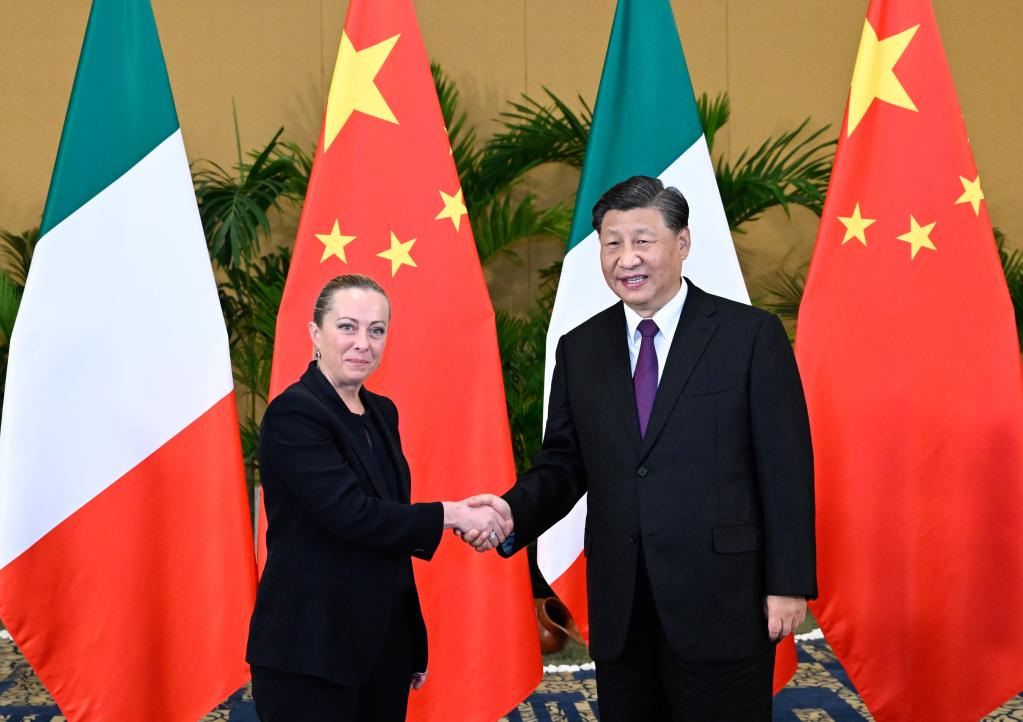International
Giorgia Meloni’s Beijing Visit: A New Chapter in Italy-China Relations?

In a significant diplomatic move, Italian Prime Minister Giorgia Meloni’s recent trip to Beijing has marked a potential turning point in Italy-China relations. This visit comes after Italy’s notable withdrawal from China’s Belt and Road Initiative (BRI) just a year prior, signaling a possible relaunch of bilateral ties.
The highlight of Meloni’s visit was the establishment of a three-year action plan aimed at bolstering cooperation across various sectors, including trade and green development. This plan represents a mutual commitment to enhancing economic ties, despite Italy’s previous concerns over the tangible benefits of BRI participation.
Meloni’s stance in Beijing was clear: she advocated for more balanced trade relations and expressed openness to Chinese investments, particularly in sectors that could stimulate Italy’s industrial growth, such as automotive and renewable energy. The action plan includes agreements for Chinese companies to set up car and wind turbine manufacturing plants in Italy, which could lead to job creation and technological exchange.
However, the broader context of Europe’s cautious approach towards China, especially in light of the significant trade deficit and geopolitical tensions, casts a shadow over the future of these agreements. The EU’s “de-risking” strategy reflects growing concerns over economic dependencies and political divergences, particularly regarding China’s stance on Russia.
The question remains: could a shift towards a more conservative or far-right majority in the EU parliament influence the bloc’s relationship with China? Meloni’s visit may have opened doors for renewed dialogue, but the extent to which Italy can or will influence EU-China relations is still uncertain.
Observers note that while the action plan serves as a diplomatic gesture of goodwill, it may also be perceived as a face-saving measure following Italy’s exit from the BRI. Nonetheless, it underscores the complexity of international relations, where economic interests, political ideologies, and global strategies intersect.
As the EU grapples with its stance towards China, Italy’s engagement presents a case study of the delicate balance between national interests and collective European policies. The outcomes of this renewed cooperation will be closely watched, as they may set a precedent for future interactions between China and other EU member states.
For now, Meloni’s visit signifies a cautious step forward in the intricate dance of diplomacy, where every move is measured and the music of international politics plays on. The world will be watching to see if this overture leads to a harmonious symphony or a discordant note in the complex relationship between Italy, the EU, and China.






